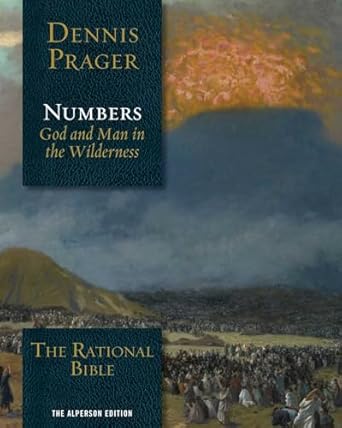Galations #6: Live in Freedom
November 3, 2024Pastor Patrick presented today's message, "Galations #6: Live in Freedom." A video of today's message is here on YouTube.
What if we called them "Jesus' Laws" instead of "Jesus' Teachings." And what if we called the "Old Testament Laws" the "Old Testament Teachings?" Would anything really change? Just semantics, my friends.
For one thing, nearly all of Jesus "teachings" can be traced to Old Testament "law."
An oft-used criticism of the Old Testament teachings is that they are all negative. Actually, they are not all negative, but I get the point; many are. Is using the negative not the most concise way to establish behavior with the most freedom? List the relatively few things that are not allowed and leave everything else wide open!
Here's an interesting article that goes into this concept: Freedom is What We're Made For: A Surprising Look at God's Law.
Bonus
Abraham Dies Peacefully and is Gathered to His Kin
Genesis 25:8-10
Abraham and Isaac were the only two key people in the Torah to die contentedly. Most characters of the Torah die with some level of unfulfilled hopes, unresolved issues, in terrible pain, alienated, or some other burden. This is a good lesson for life. It's unreasonable to expect to die with all your t's crossed and i's dotted. Hold on to those great moments during your life to provide solace and happiness at the end.
Today, let's focus on Genesis 25:8b, "and he was gathered to his kin."
This phrase is used at the deaths of Isaac, Ishmael, Jacob, Aaron, and Moses. The phrase only makes sense in reference to an afterlife. It can't refer to being buried with his kin (i.e. graves side by side) because the phrase is used even when that is clearly not done or even possible. Another thing to note is that the phrase is used upon dying, not upon burial. It has to mean being united with ancestors in some way.
Ecclesiastes 12:7 spells this out, "The dust returns to the ground it came from, and the spirit returns to God who gave it."
Some scholars thought that the notion of an afterlife came well after Old Testament times. This is clearly erroneous.
Prager notes that it would have been very natural for the Torah to outright reject an afterlife in light of the Torah's vehement rejection of Egypt's focus on death. Their bible was The Book of the Dead after all.
So why just a few comments in passing about an afterlife by the Torah? Prager posits that the Torah wants people focused on this life. After all, it's the only life you can do anything about, at least in the here and now. The Torah is very pro-life and anti-death.
Beyond the Torah, Prager points out that there is clearly an immaterial reality. Ideas are clearly an immaterial reality. And if you believe in an immaterial God, again there is immaterial reality. The human soul could be such an immaterial reality.
Another indirect indication has to do with justice. If there is a God, and He is just, there must be an afterlife to ultimately bring about justice. It's clear that earthly life is far from just.
People put forth other ideas about an "afterlife." For instance, I will live on through my children and my good works." I call B.S. The vast majority of people, good, bad, or indifferent, are not remembered in any meaningful way a couple of generations down the road. Most people can't even name their great grandparents let alone anyone further back. And what about those who die young before having children or doing anything memorable. Most people's accomplishments in this life fade quickly. It's an additionally cruel thought when it comes to people who didn't, or worse couldn't, have children. And what if your entire family is wiped out as in the Holocaust or natural disaster. How do those folks "live on?"
Actually, it's often bad works that live on. History is bespeckled with bad actors.
The bottom-line is this: if there is no afterlife, there is no living on. It's just dust for the vast majority of us; all is forgotten.
Prager concludes his discussion with this: "The Torah's view is we are supposed to be preoccupied with making this world as heavenly as possible. Those who live by its [the Torah's] moral laws and values are best able to achieve that goal."
Most of this is from Prager's Rational Bible: Genesis, pp. 290-295.
I read another interesting thought at GotQuestions.org: "Another teaching that can be inferred from 'gathered to his people' is that, even after death, souls retain their individuality. When he died, Isaac did not cease being Isaac; rather, his spirit or soul was taken to another place where his ancestors had already gone. Isaac was not joining an impersonal collective or some kind of cosmic consciousness - he was joining a crowd of individual people he knew."
Bonus2
 Out November 19th - Rational Bible: Numbers
Out November 19th - Rational Bible: NumbersDennis Prager's 4th book in his Rational Bible series will be released the 19th of this month - just 2 weeks away! You can get it most anywhere books are sold, but if you want it from the man himself, go to: The Rational Bible. You can even get it autographed from there.
If you follow this website at all, you're probably well aware that it was Prager's Rational Bible: Exodus that got me going on my Torah quest. I was blown away by what I learned despite having been exposed to all the stories since childhood. You'll get a whole new perspective and much more solid understanding of what's being taught in the Torah (first five books of the Bible: Genesis, Exodus, Leviticus, Numbers, and Deuteronomy). For a very brief summary of what's contained in these Torah books: Torah Outline.